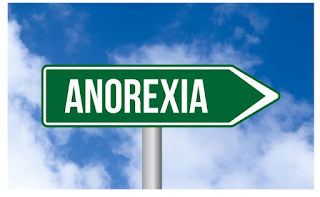The Twisted Cycle: Understanding Bulimia and Anorexia (Anorexia Nervosa and Bulimia Nervosa)
Today, we're diving deep into two serious eating disorders: bulimia and anorexia.
These illnesses wreak havoc on physical and mental health, and it's crucial to understand them to offer support and combat stigma.
So, buckle up, and let's unpack the cycles, symptoms, and paths to recovery.
Understanding the Monsters:
Anorexia Nervosa:
Understanding the Monsters:
Anorexia Nervosa:
The face of starvation, anorexia is characterized by severe calorie restriction, intense fear of weight gain, and a distorted body image. People with anorexia often deny their hunger and see themselves as overweight even when dangerously thin.
Bulimia Nervosa:
Bulimia Nervosa:
A cycle of extremes, bulimia involves recurrent binge-eating episodes followed by purging behaviours like vomiting, laxative use, or excessive exercise. Shame and guilt fuel this cycle, leading to emotional distress and physical complications.
The Twisted Cycle:
The Trigger:
The Twisted Cycle:
The Trigger:
Stress, social expectations, or underlying mental health issues can trigger unhealthy eating patterns.
The Binge:
The Binge:
In bulimia, overwhelming urges lead to uncontrolled eating of large amounts of food. Feelings of shame and anxiety follow.
The Purge:
The Purge:
To compensate for the binge, individuals with bulimia engage in purging behaviours to rid themselves of calories.
The Repeat:
The Repeat:
This cycle becomes a vicious loop, creating a constant battle with food and one's own body.
Beyond the Numbers:
Anorexia and bulimia affect people of all genders, ages, and backgrounds. Remember, these are serious mental illnesses, not simply choices.
Beyond the Numbers:
Anorexia and bulimia affect people of all genders, ages, and backgrounds. Remember, these are serious mental illnesses, not simply choices.
Focusing on weight is like judging a book by its cover, overlooking the complex emotional struggles within.
Warning Signs:
Anorexia:
Warning Signs:
Anorexia:
Extreme weight loss, preoccupation with food and calories, denying hunger, withdrawal from social life, cold intolerance, fatigue.
Bulimia:
Bulimia:
Frequent trips to the bathroom, swollen cheeks and glands, calluses on knuckles (from purging), dental erosion, mood swings, anxiety, depression.
Breaking the Cycle:
Recovery is possible, but it requires professional help. Therapists and nutritionists can address the underlying issues and develop healthy eating habits. Remember, seeking help is a sign of strength, not weakness.
Call to Action:
Breaking the Cycle:
Recovery is possible, but it requires professional help. Therapists and nutritionists can address the underlying issues and develop healthy eating habits. Remember, seeking help is a sign of strength, not weakness.
Call to Action:
If you or someone you know is struggling with an eating disorder, please reach out for help.
Spread awareness!
Talk openly about eating disorders, and challenge the stigma surrounding mental health.
Remember, you're not alone.
Let's create a supportive community where everyone feels empowered to seek help and reclaim their health.
Let's continue the conversation, break the silence, and help those battling these invisible illnesses.
Until next time, stay kind, stay informed, and most importantly, stay healthy.
Remember, spreading awareness and fostering empathy can truly make a difference in the lives of those struggling with eating disorders.
Remember, spreading awareness and fostering empathy can truly make a difference in the lives of those struggling with eating disorders.




Comments